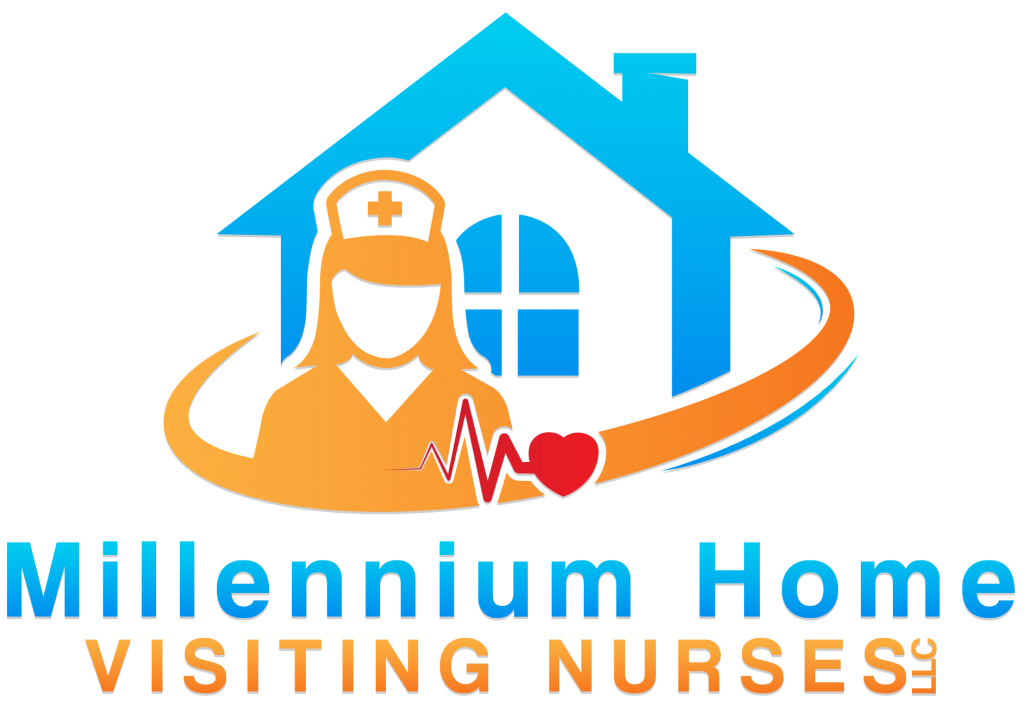Medication adherence presents a significant challenge for many aging adults. According to the National Council on Patient Information and Education, nearly 75% of Americans have trouble taking their medications as prescribed, with elderly patients being particularly vulnerable. For families with aging parents, ensuring proper medication management isn’t just about convenience. it’s a critical health and safety concern.
Elderly Medication Management: Help Parents Stay on Track
When older adults miss their prescribed medications, the consequences can range from reduced treatment effectiveness to serious health complications, hospital readmissions, and even life-threatening situations. Understanding why medication non-adherence happens and implementing practical solutions can make an enormous difference in your elderly parent’s health outcomes and quality of life.
This comprehensive guide explores the reasons behind missed medication doses in seniors and provides practical strategies to help your loved ones maintain their medication schedules successfully.
Why Elderly Parents Miss Medication Doses
Several factors contribute to medication non-adherence among older adults. Recognizing these underlying causes can help families address the root issues rather than just the symptoms.
- Cognitive Challenges: Age-related cognitive changes, including early dementia and mild memory impairment, can make it difficult for seniors to remember whether they’ve taken their medications. Even older adults without diagnosed cognitive conditions may struggle with short-term memory, particularly when managing multiple medications.
- Complex Medication Regimens: Many elderly individuals take five or more medications daily, a situation known as polypharmacy. According to research published in the Journal of the American Geriatrics Society, nearly 39% of adults over 65 take five or more prescription medications. These complex regimens, often with different dosing schedules, create significant confusion and overwhelm many seniors.
- Physical Limitations: Arthritis can make it difficult to open medication bottles or blister packs. Vision problems may prevent seniors from reading small prescription labels. Swallowing difficulties can cause resistance to taking medications, especially larger pills.
- Dr. Sarah Chen, geriatric pharmacist at Johns Hopkins Medicine, explains: “Physical barriers to medication adherence are often overlooked, but they’re common reasons why otherwise capable seniors miss doses. Something as simple as difficult packaging can derail an entire medication schedule.”
- Medication Side Effects: Seniors who experience uncomfortable side effects from their medications may intentionally skip doses. Without proper guidance on managing these effects or alternatives, this form of non-adherence can become habitual.
- Psychological Factors: Depression and isolation can significantly impact medication adherence. Seniors living alone without social support may lack motivation for self-care, including following medication regimens. Some elderly individuals may also experience denial about their health conditions or medication needs.
- Financial Constraints: The high cost of prescription medications forces some seniors to ration their medications, taking them less frequently than prescribed to make them last longer. This economic non-adherence is particularly common among those with limited fixed incomes or inadequate prescription coverage.
Signs Your Elderly Parent May Be Missing Medication Doses
Being aware of potential warning signs can help you identify medication adherence problems early. Look for these indicators:
- Worsening of controlled health conditions despite prescribed treatment
- Pills remaining in containers after scheduled doses should have been taken
- Confusion when asked about medication schedules or recent doses
- Prescription refills that last longer than they should based on prescribed usage
- Increased health complaints related to conditions that should be managed by current medications
- Disorganized pill bottles or chaotic medication storage
- Reluctance to discuss medications or changing the subject when asked about them
Regular observation and gentle conversations about medications can help you spot these warning signs before they lead to serious health consequences.

Practical Solutions for Preventing Missed Doses
Creating effective systems for medication management requires a multifaceted approach tailored to your parent’s specific needs and challenges.
Medication Organization Systems
Pill organizers remain one of the most effective tools for improving medication adherence. These range from simple daily compartments to sophisticated weekly or monthly systems with multiple dose times per day.
“The right pill organizer depends on your parent’s specific medication schedule and cognitive abilities,” explains Maria Garcia, RN, a geriatric care specialist. “For some seniors, a basic AM/PM weekly organizer works perfectly, while others benefit from systems with alarms or more detailed time intervals.”
When selecting an organizer:
- Consider the number of medications and daily doses required
- Evaluate ease of opening for those with arthritis or dexterity issues
- Look for high-contrast colors and large print for those with vision impairments
- Assess whether your parent can reliably fill the organizer or if assistance will be needed
Creating Clear Medication Instructions
Developing clear, accessible instructions can significantly improve adherence rates, especially for seniors who are generally independent but need some memory support.
A comprehensive medication sheet should include:
- Medication names (both brand and generic)
- Purpose of each medication
- Exact dosage instructions
- Special administration requirements (with food, on empty stomach, etc.)
- Potential side effects to watch for
- A visual description of each pill
For seniors with vision limitations, consider using larger font sizes, high-contrast printing, and even attaching small samples of actual pills (properly labeled and secured) to the instruction sheet for visual reference.
Establishing Consistent Routines
Human behavior is largely driven by habit, and medication adherence improves dramatically when integrated into existing daily routines. Work with your parent to identify stable daily activities that can serve as medication anchors, such as breakfast, brushing teeth, or watching a favorite television program.
“Linking medication taking to established habits creates automatic behavioral cues,” notes Dr. Robert Thompson, geriatric psychiatrist. “When medications become part of a sequence the senior already performs reliably, adherence rates improve substantially.”
Avoid creating overly complicated schedules. When possible, work with healthcare providers to simplify dosing schedules to once or twice daily regimens that fit naturally into your parent’s lifestyle and preferences.

Technology Solutions for Medication Management
Modern technology offers numerous solutions to support medication adherence, from simple alarms to sophisticated integrated systems.
- Automated Pill Dispensers: These devices range from simple timers with compartments that open at designated times to sophisticated systems that can be programmed for complex medication schedules and even alert caregivers if doses are missed.
- Medication Reminder Apps: For seniors comfortable with smartphones or tablets, apps like Medisafe, Care Zone, or MyMeds provide customizable reminders, medication information, and tracking capabilities. Many can be synchronized with family members’ devices for monitoring and support.
- Smart Medication Bottles: Products like AdhereTech smart bottles can detect when medications are taken and send alerts for missed doses directly to the senior or designated caregivers.
- Voice-Activated Systems: For tech-savvy seniors, virtual assistants like Amazon Echo or Google Home can be programmed to provide medication reminders through simple voice commands.
When implementing technology solutions, James Wilson, healthcare technology specialist, recommends: “Start with the simplest solution that meets your parent’s needs. Technology should reduce confusion, not add to it. Always include a training period and regular check-ins to ensure the system works for your specific situation.”
The Role of Family Caregivers in Medication Management
Family involvement makes a significant difference in medication adherence rates among elderly adults. Even if you don’t live with your parent, there are effective ways to support proper medication management:
Communication Strategies
Regular, non-judgmental conversations about medications help normalize the topic and reduce resistance. Instead of asking “Did you take your pills today?” which can feel accusatory try: “How’s your new blood pressure medication working? Have you noticed any changes?”
When discussing the importance of medications, focus on positive outcomes rather than dire consequences. Emphasize how medications help maintain independence and quality of life rather than focusing on the negative aspects of missed doses.
Practical Support Systems
Many families use a combination of in-person and remote support:
- Regular video calls at medication times for virtual supervision
- Weekly preparation of pill organizers during visits
- Shared calendar systems for refill reminders
- Medication logs where your parent can check off doses
- Coordination with local pharmacies for medication reviews and delivery services
“Family involvement doesn’t necessarily mean doing everything yourself,” explains social worker Teresa Huang. “Often, the most effective approach is creating simple systems and check-ins that maintain your parent’s sense of independence while providing necessary oversight.”

Professional In-Home Care Solutions
When medication management becomes too complex or risky for family supervision alone, professional in-home care offers specialized support. At Millennium Home Visiting Nurses, medication management is one of our core services for seniors in Rockville and throughout Maryland.
Professional caregivers provide multiple layers of medication support:
- Comprehensive medication reconciliation to prevent dangerous interactions
- Coordination with healthcare providers about effectiveness and side effects
- Physical assistance with difficult-to-open containers or administration methods
- Monitoring for side effects and therapeutic response
- Transportation to pharmacy and physician appointments
- Education about medication purposes and importance
Professional medication management becomes particularly valuable when seniors:
- Take multiple high-risk medications (like anticoagulants or insulin)
- Have recently experienced medication-related problems
- Show signs of cognitive impairment affecting medication reliability
- Have complex administration needs (injections, inhalers, or specialized techniques)
- Recently experienced a transition of care (hospital discharge or rehabilitation stay)
Collaborating with Healthcare Providers
Building strong partnerships with your parent’s healthcare team creates opportunities for medication regimen improvements. During appointments:
- Request medication regimen reviews specifically aimed at simplification
- Ask about extended-release formulations that reduce daily doses
- Inquire about combination medications that may reduce pill burden
- Discuss therapeutic alternatives with fewer side effects if adherence issues relate to tolerability
- Request clear explanations of each medication’s purpose and importance
Many pharmacies offer medication therapy management services where pharmacists comprehensively review medication regimens. These reviews often identify unnecessary medications, potential interactions, or simplification opportunities that can significantly improve adherence.

Conclusion
Preventing missed medication doses requires a personalized approach based on your parent’s specific challenges, preferences, and living situation. By combining appropriate organizational tools, clear communication, strategic routines, and professional support when needed, you can help your elderly parent maintain medication adherence and experience improved health outcomes.
For many families in Rockville and throughout Maryland, medication management represents a significant concern and potential safety risk. At Millennium Home Visiting Nurses, our licensed caregivers specialize in creating personalized medication management systems that work with your parent’s specific needs and preferences. From simple reminder systems to comprehensive medication administration and monitoring, our team ensures that proper medication adherence becomes part of your parent’s daily routine, not an ongoing struggle.
For more information about how professional caregivers can support your family’s medication management needs, contact Millennium Home Visiting Nurses today to schedule a personalized assessment.
Frequently Asked Questions About Elderly Medication Management
Q: How can I approach the medication management conversation with an independent parent?
A: Start by expressing concern rather than control. Focus on specific examples of confusion or missed doses rather than general statements about their abilities. Suggest a “trial period” of organization systems before moving to more supervised approaches.
Q: What’s the best pill organizer for someone with arthritis?
A: Look for organizers with easy-open lids that don’t require significant pinching or twisting motions. Several brands offer arthritis-friendly designs with lever-operated lids or push-button mechanisms that require minimal dexterity.
Q: Can my parent’s medications be adjusted to simplify their schedule?
A: Absolutely. Many medications are available in different formulations or dosing schedules. Schedule a medication review appointment specifically focused on simplification, and ask about extended-release options or combination medications that might reduce the overall pill burden.
Q: Are medication services covered by Medicare or insurance?
A: Medicare Part D plans often cover medication therapy management services from pharmacists. For in-home medication management, coverage varies depending on the specific services and your parent’s insurance. Long-term care insurance may cover medication management as part of home care services. Our team at Millennium Home Visiting Nurses can help determine potential coverage options for Rockville and Maryland residents.


Recent Comments